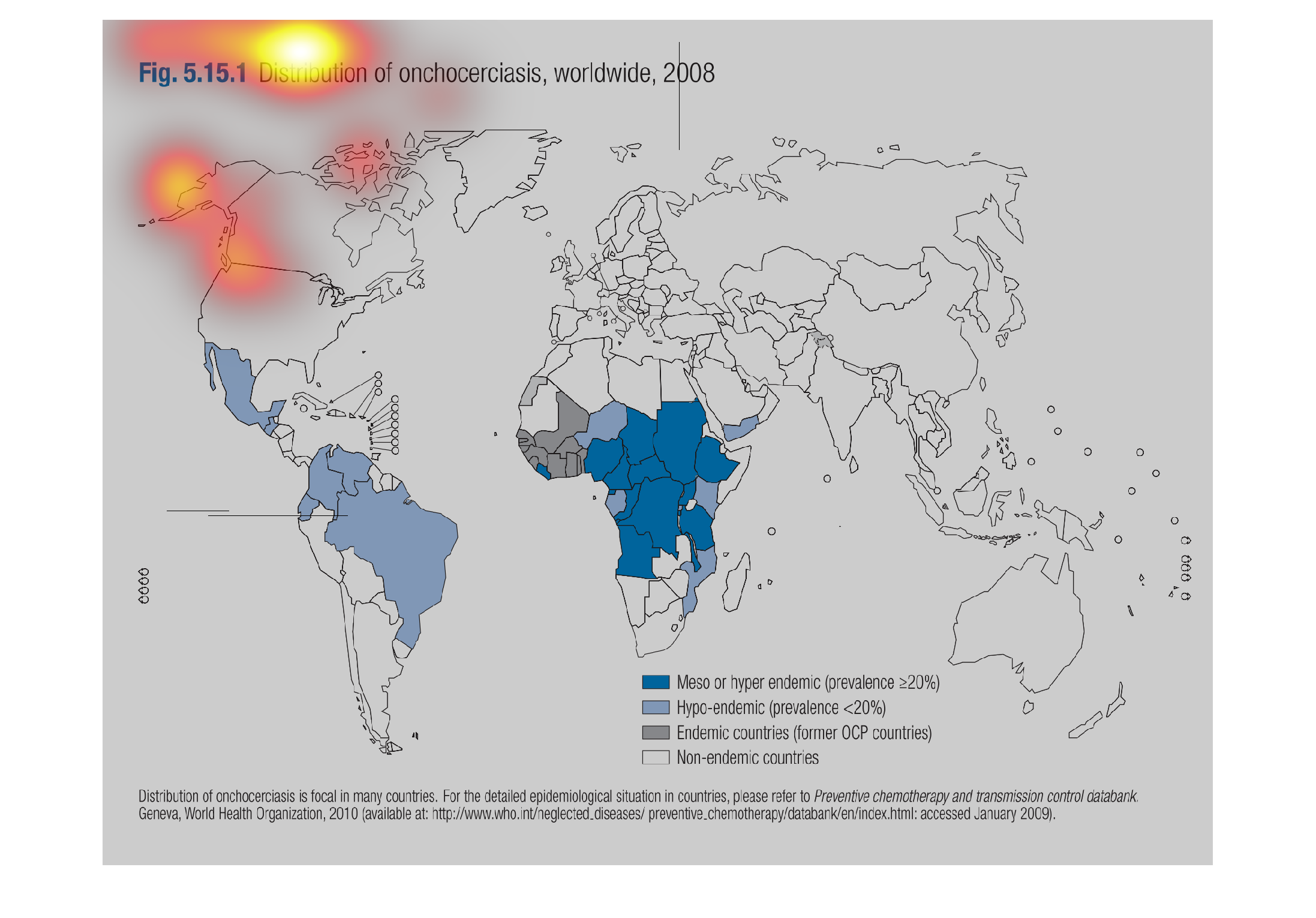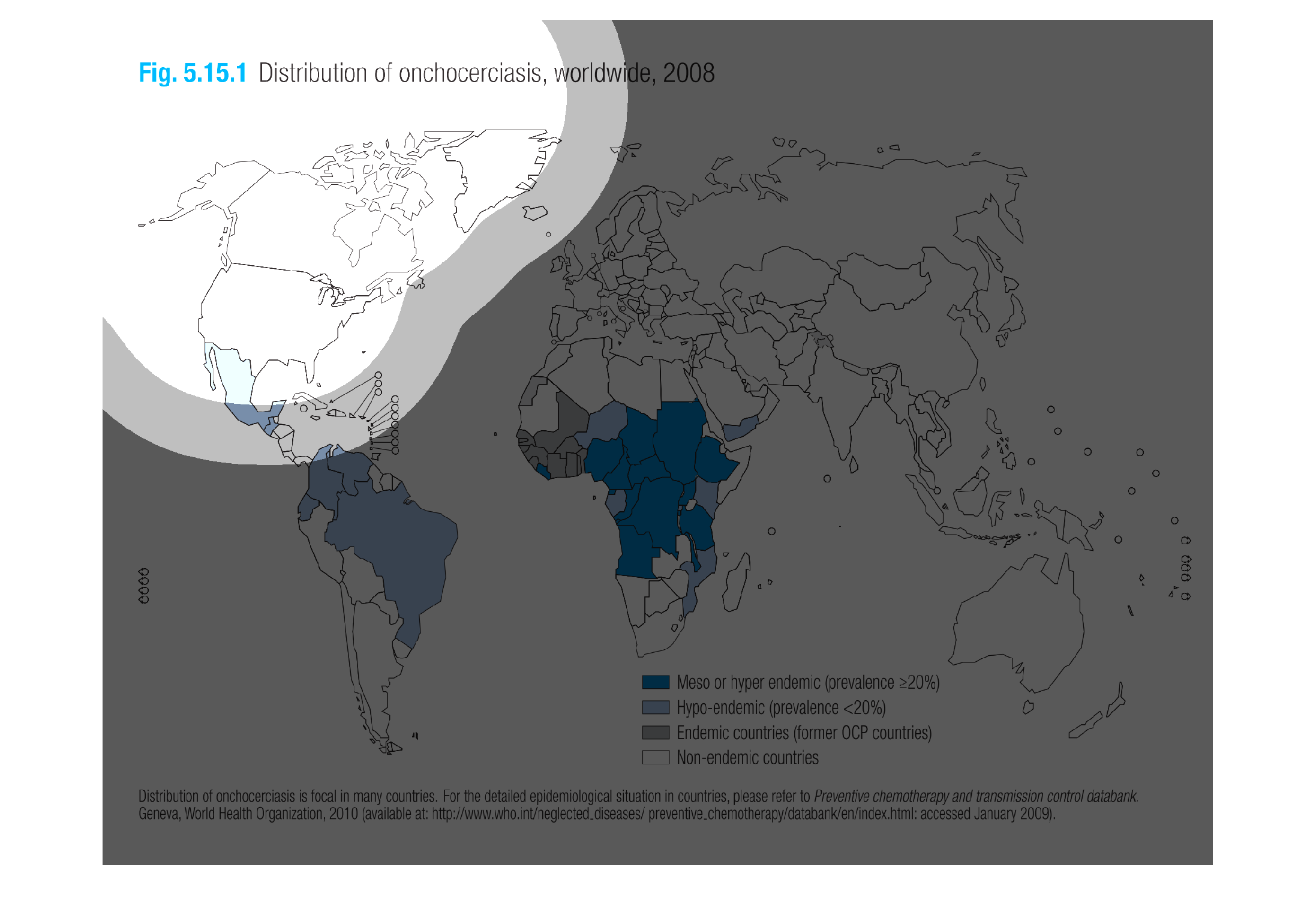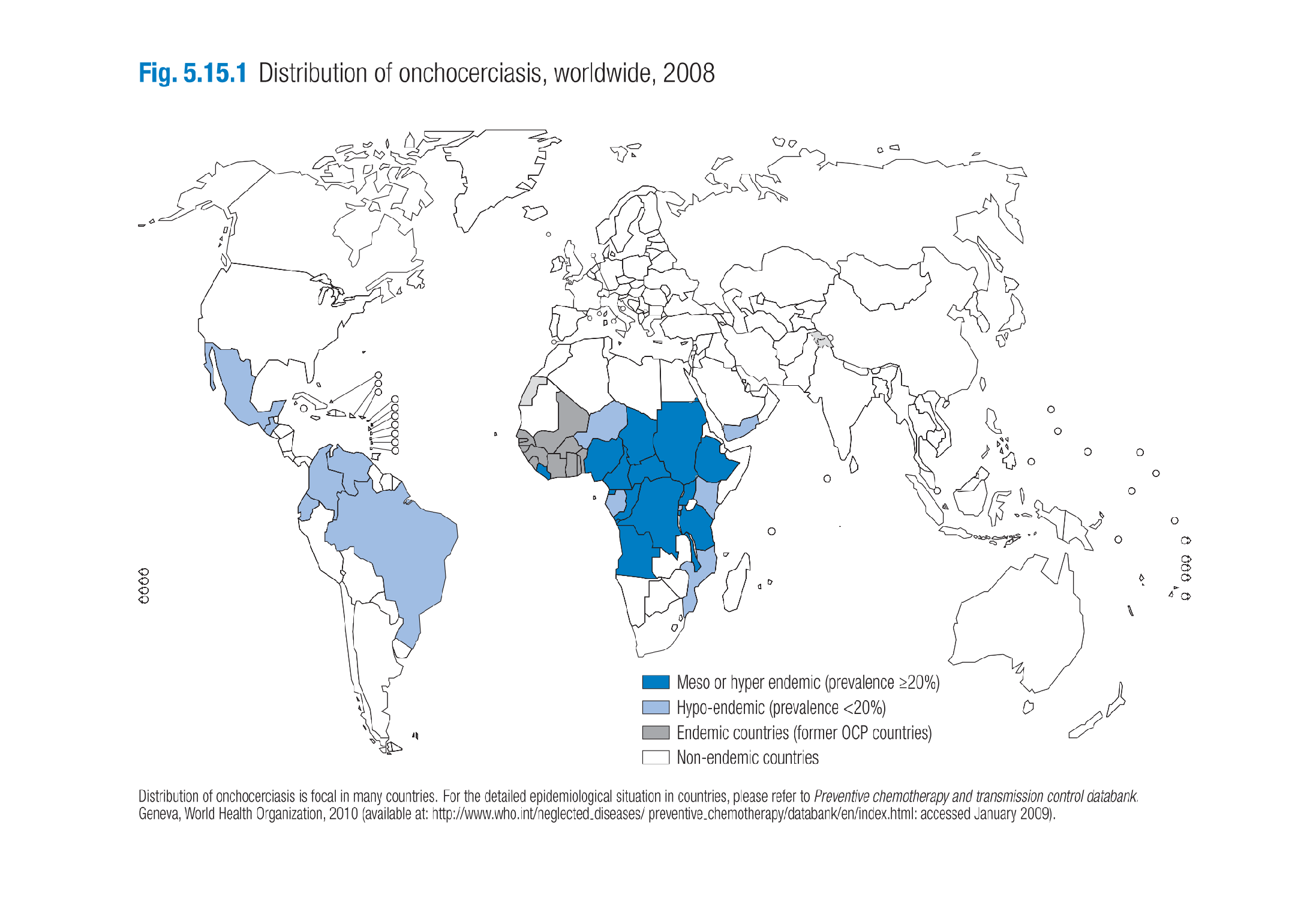
This image shows the worldwide distribution of onchocerciasis, 2008. Mexico and parts of South
America have a hypo-endemic prevalence (less than 20%), Many countries in African have a meso
or hyper endemic prevalence (greater than or equal to 20%), while a few countries in African
have hyp-endemic prevalence, and a few others are either endemic countries (former OCP countries)
or non endemic countries. All other world countries are non-endemic.
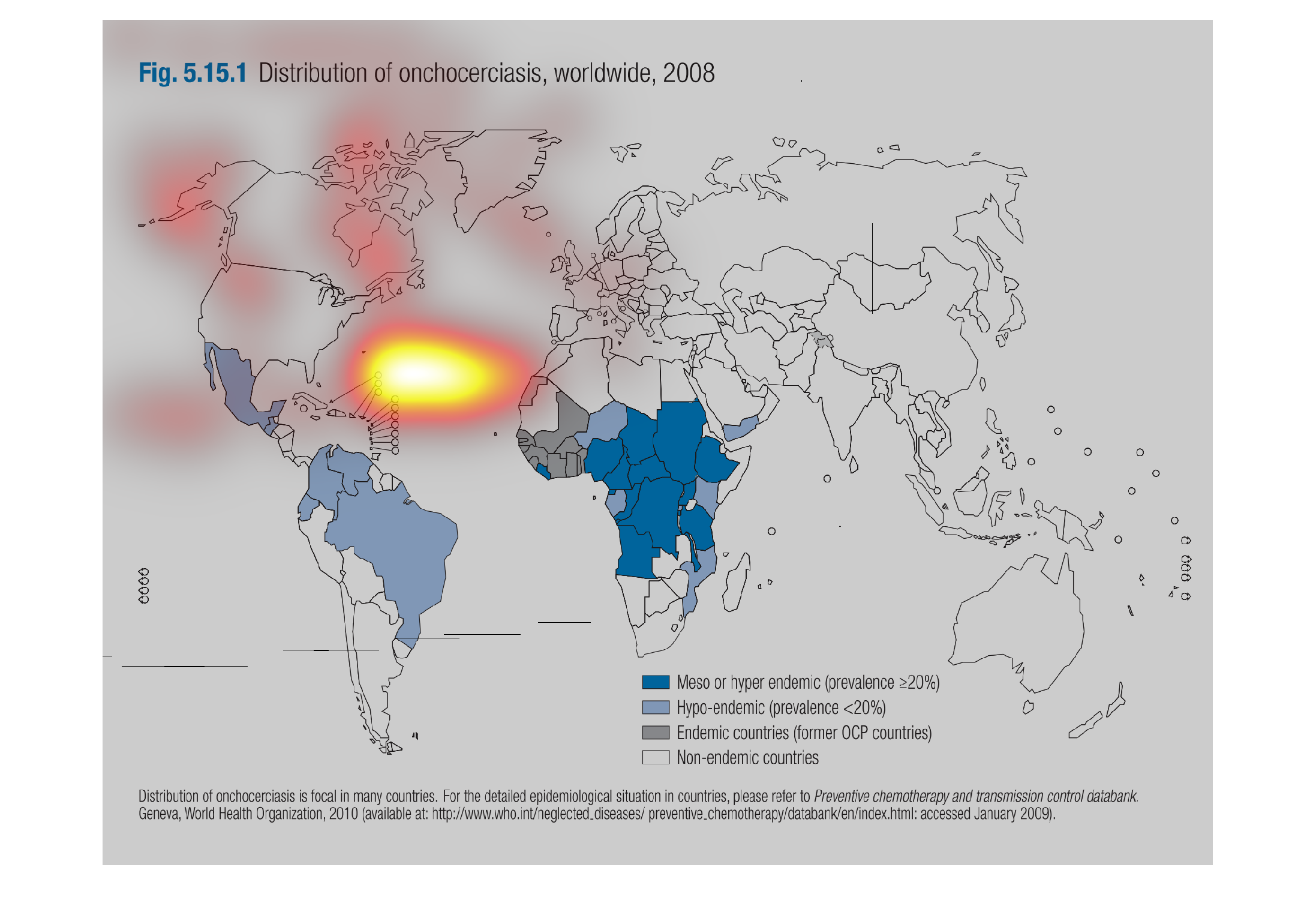
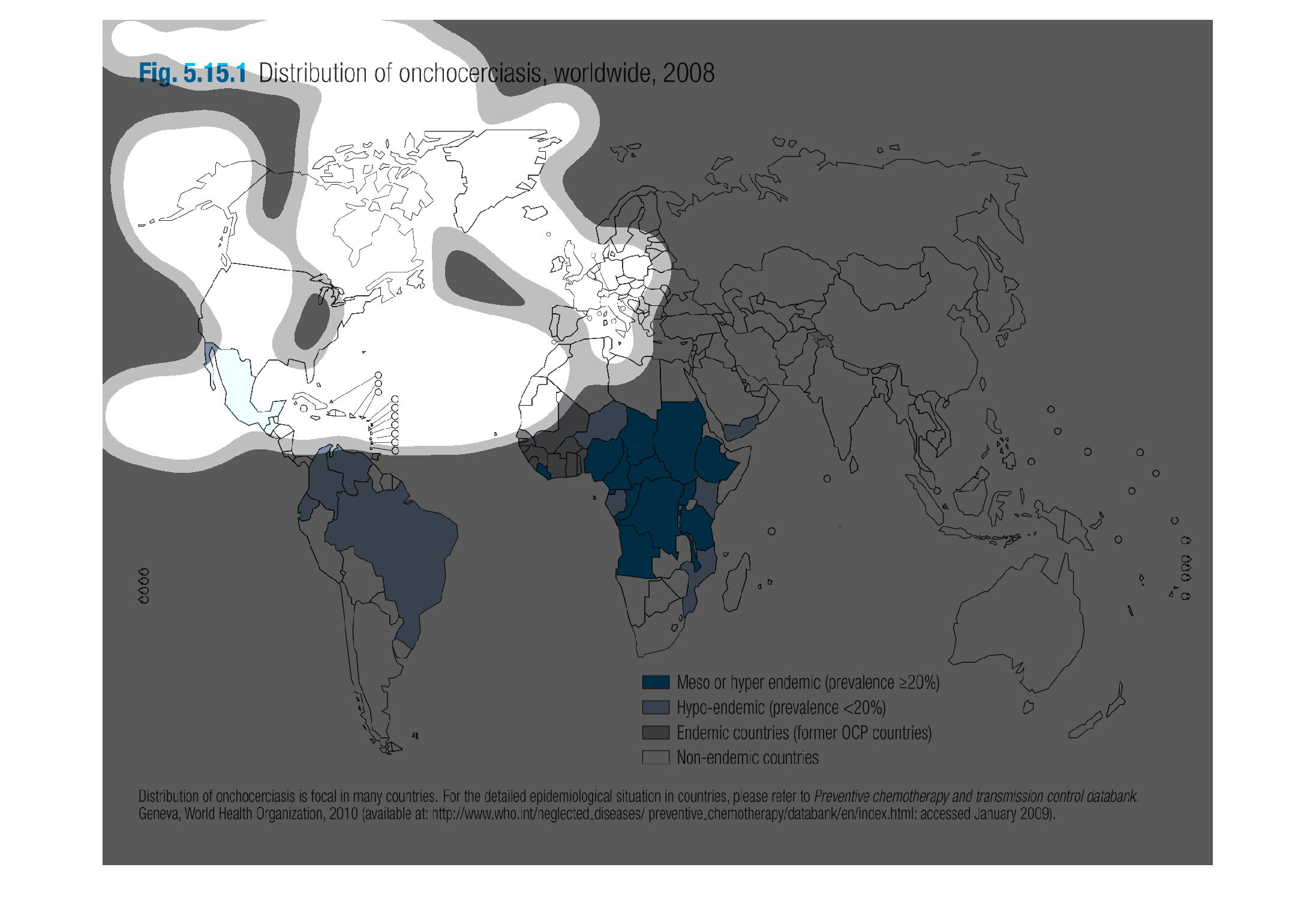
Figure 5.15 is a graph showing distribution of onchocercias worldwide as of 2008. The severity
of the epidemic is shown in different shades of blue on the map, each representing a different
amount.
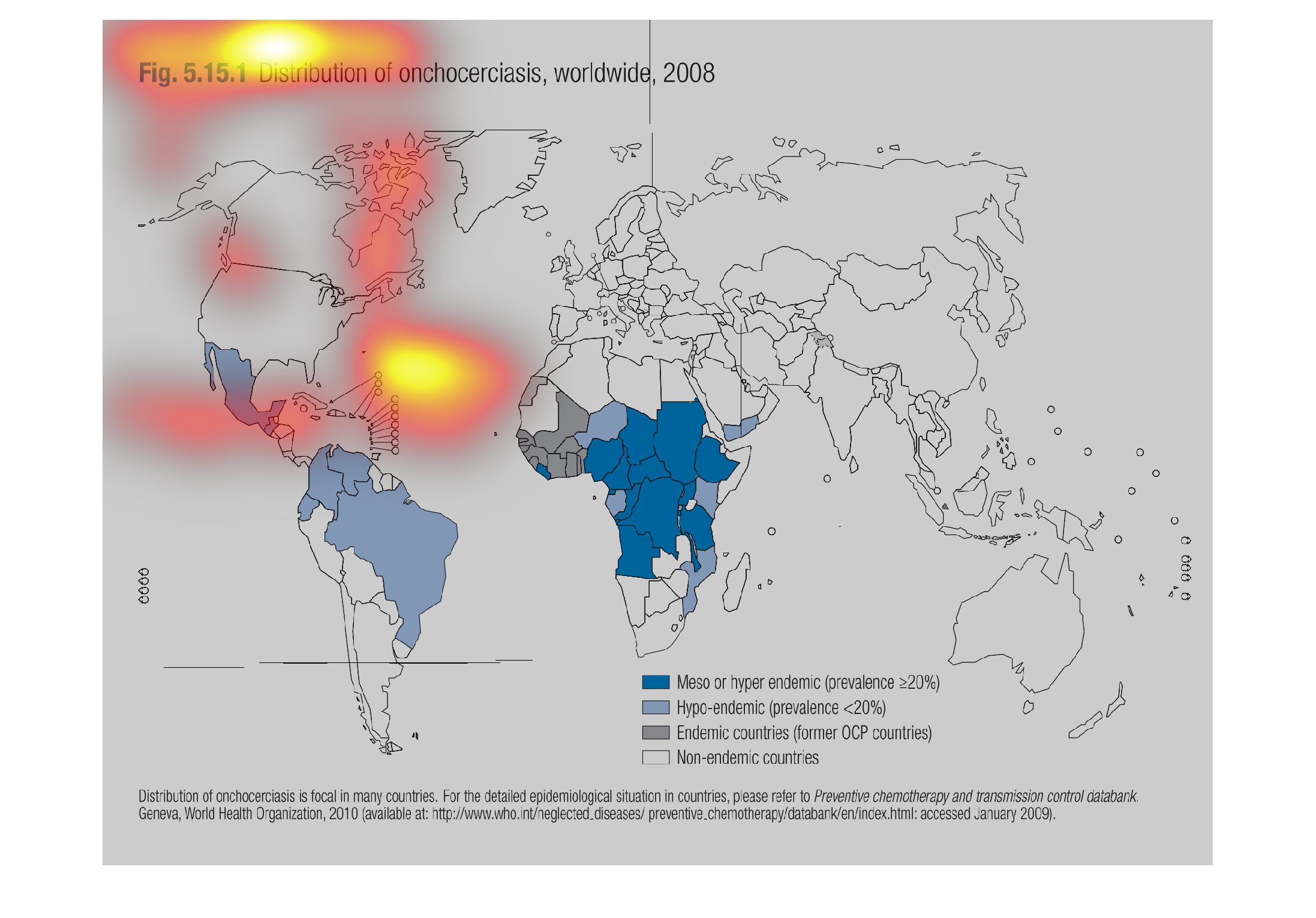
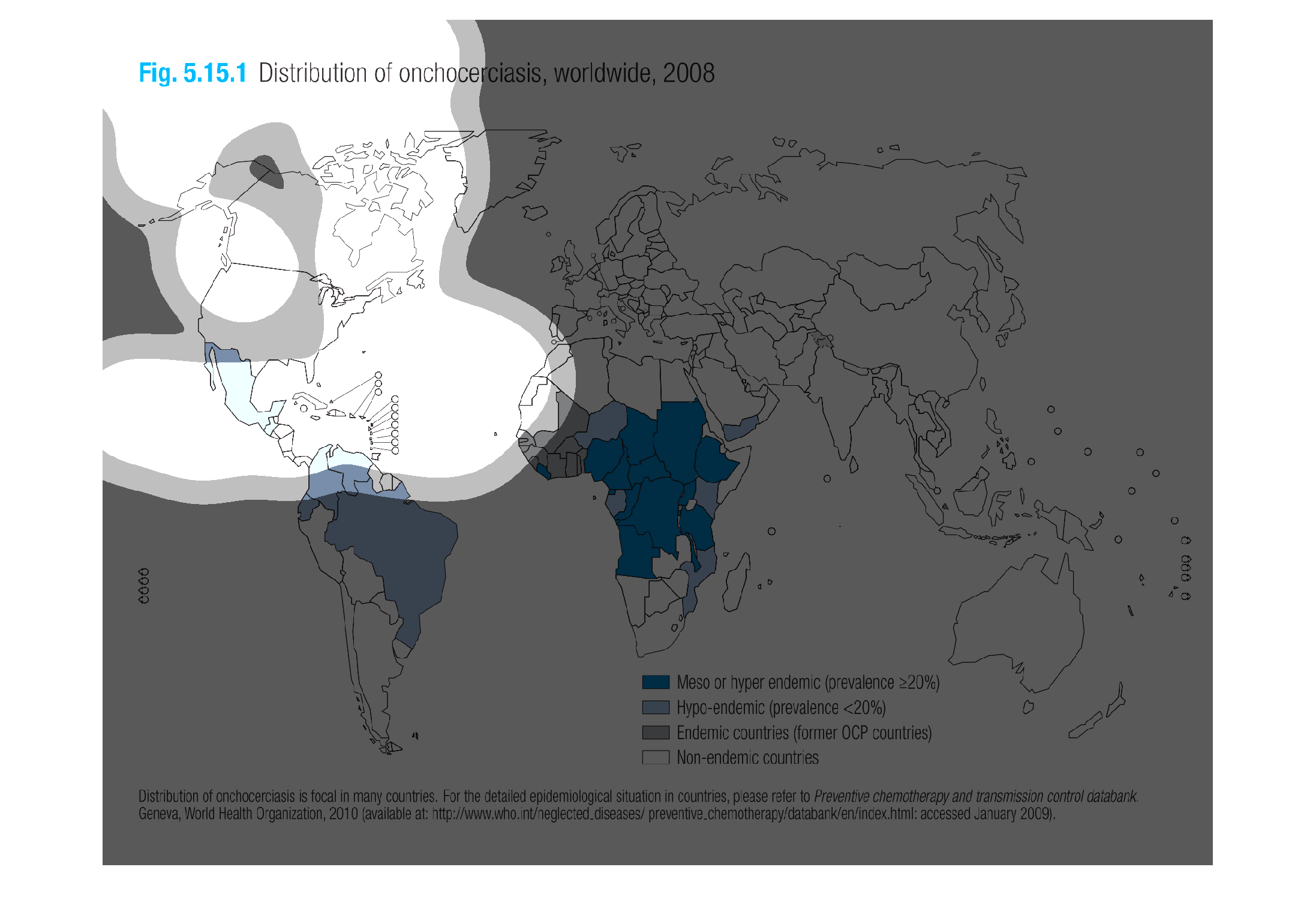
This image displays a world map and indicates the distribution of onchocerciasis across the
globe. It seems to be concentrated mostly in Africa, where the prevalence is greater than
20%, with some also appearing in South America and Mexico.
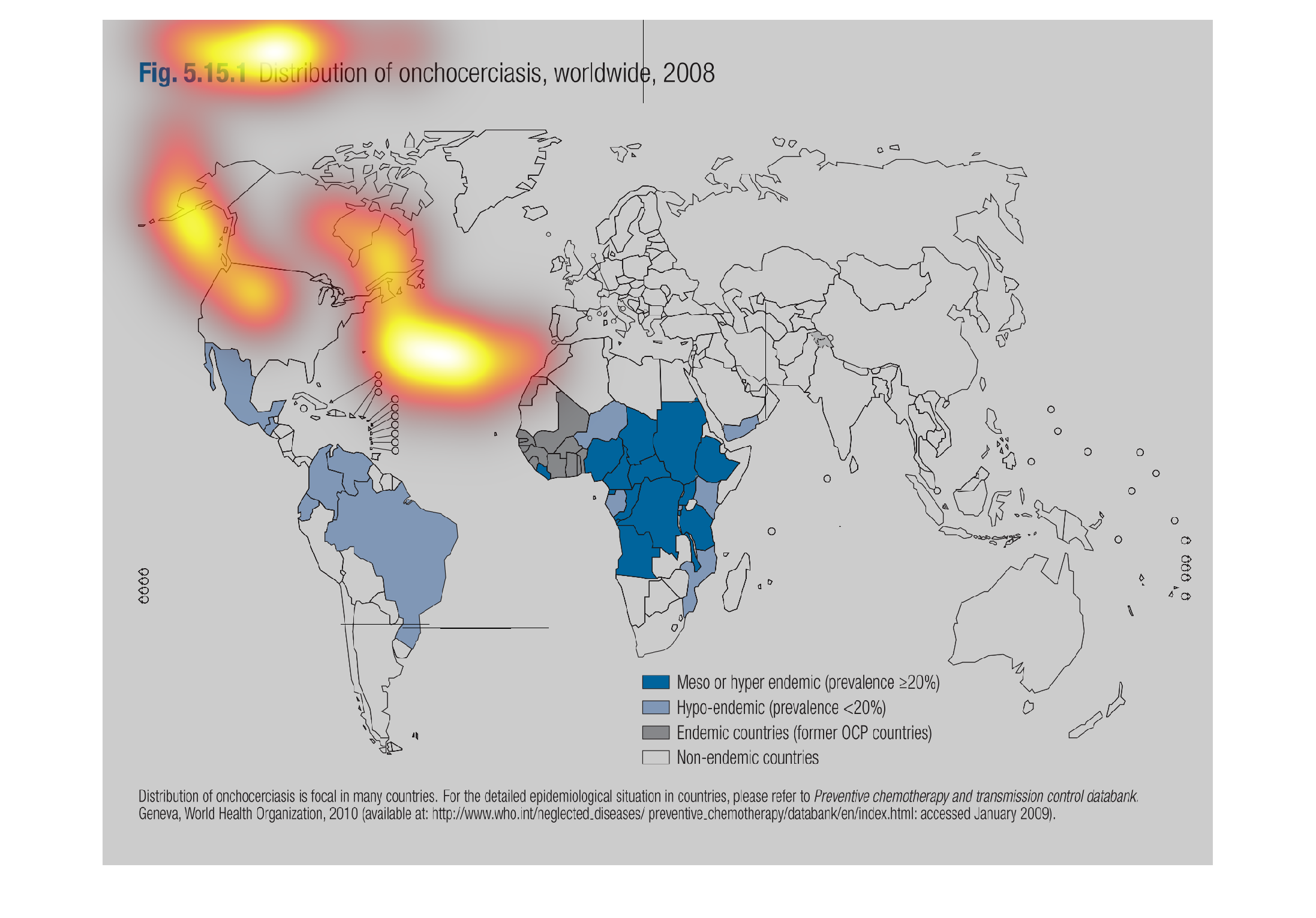
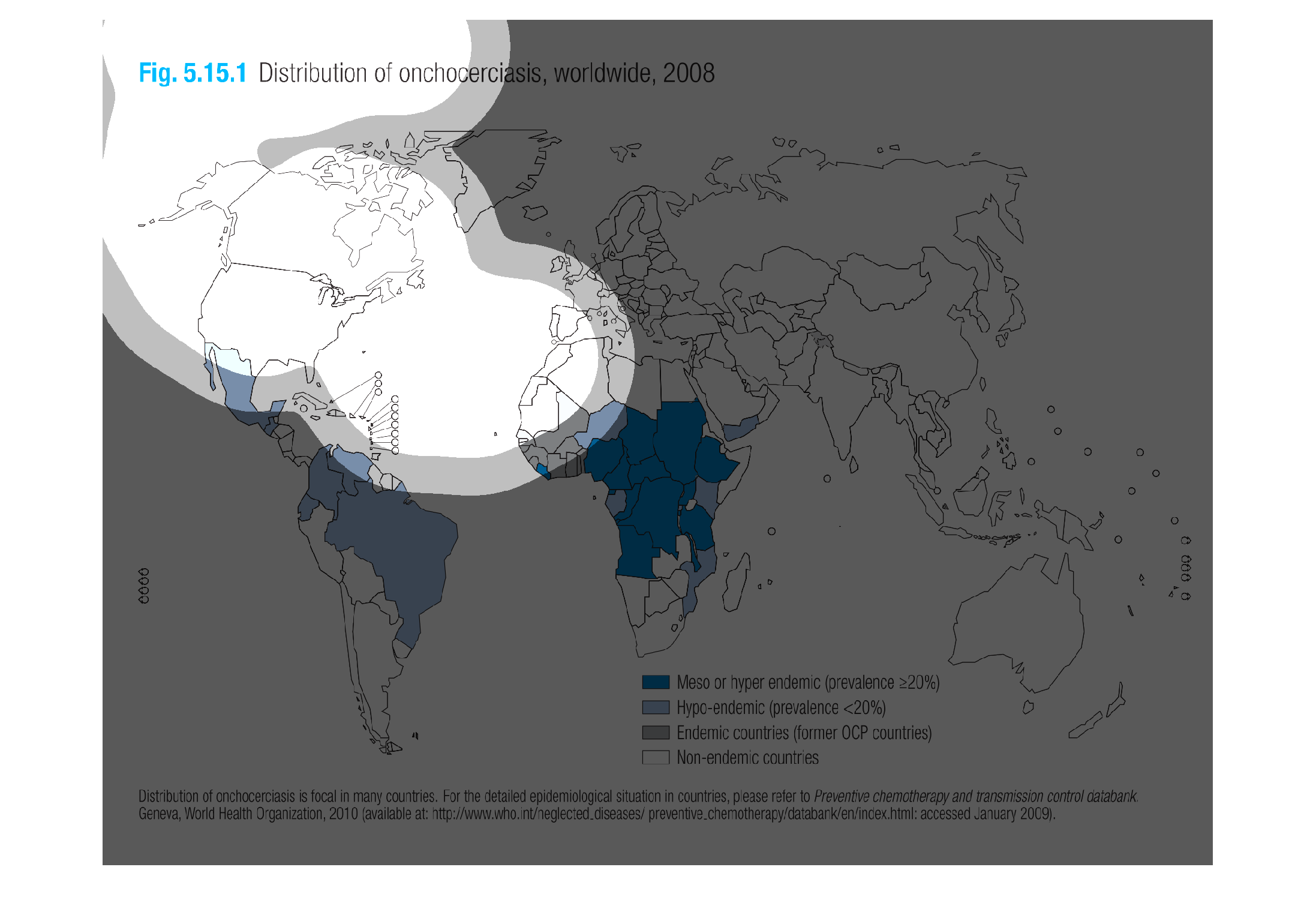
This chart describes distribution of onchocerciasis, worldwide, for the year 2008. Different
categories on the chart are represented by different colors.
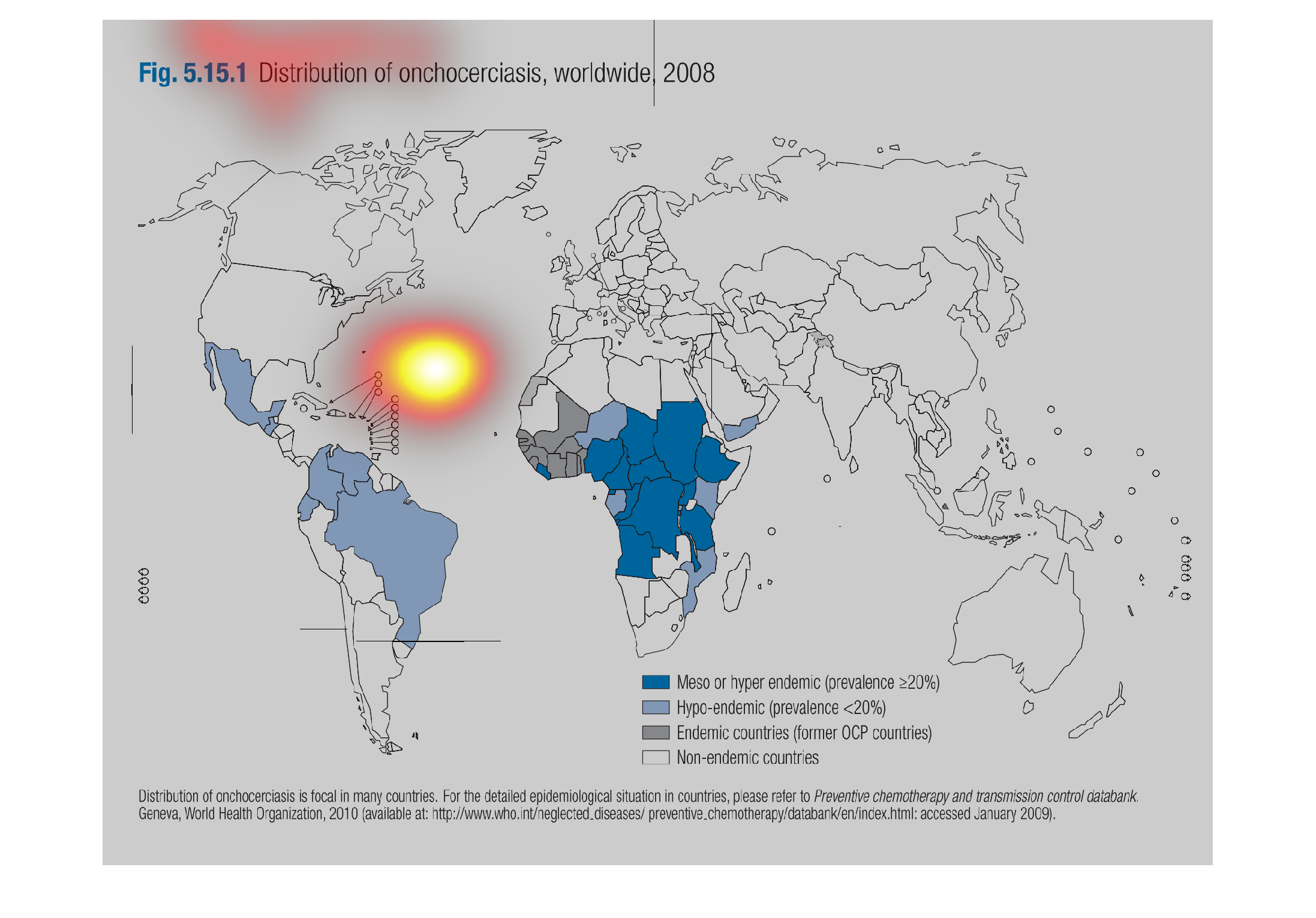
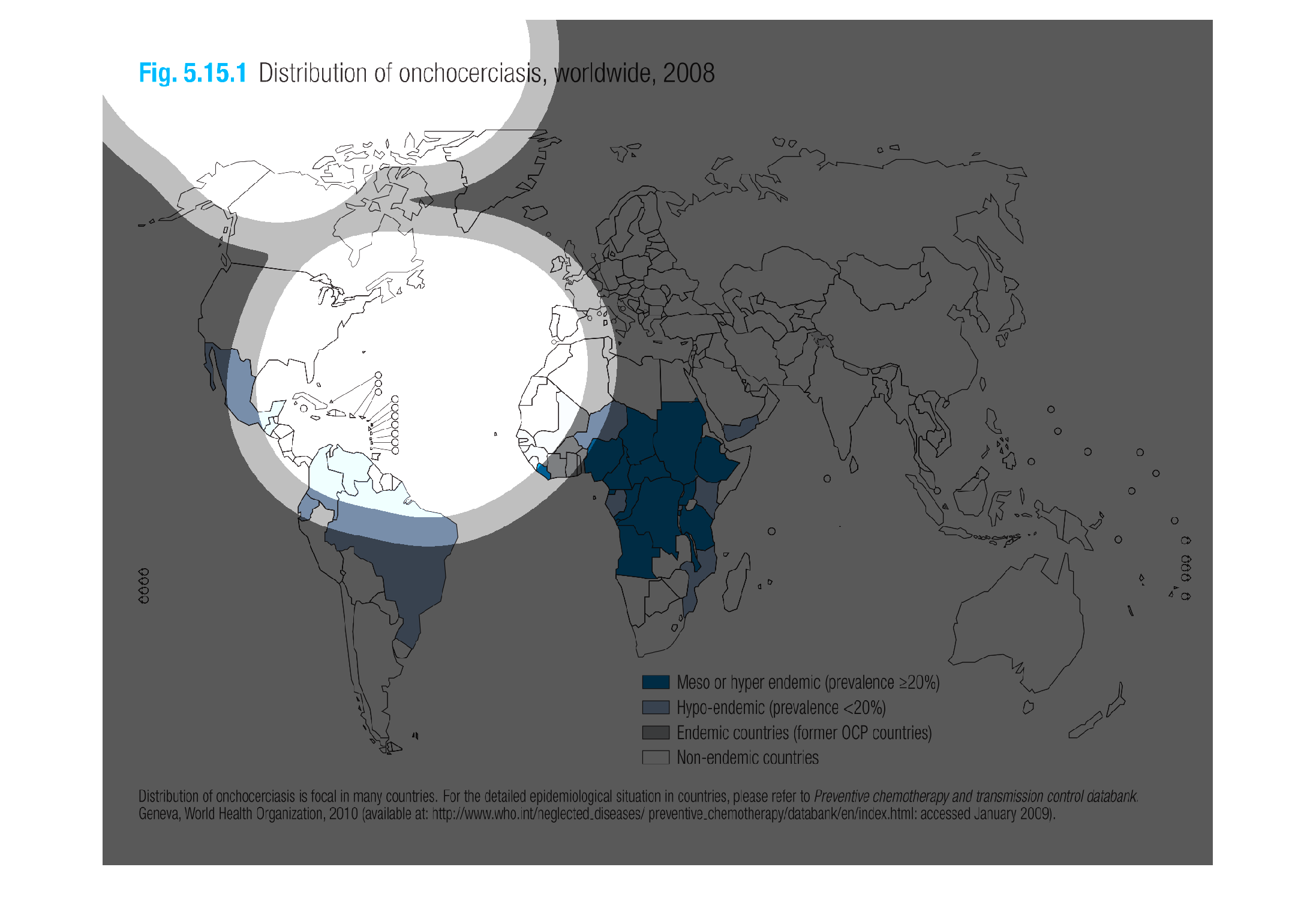
The image on the left hand side is a image of the world and its countries, some countries
are colored in representing their distribution of the disease onchocerciasis. From the data
collected Africa has this highest percentage with greater than 20% of some regions have this
disease.
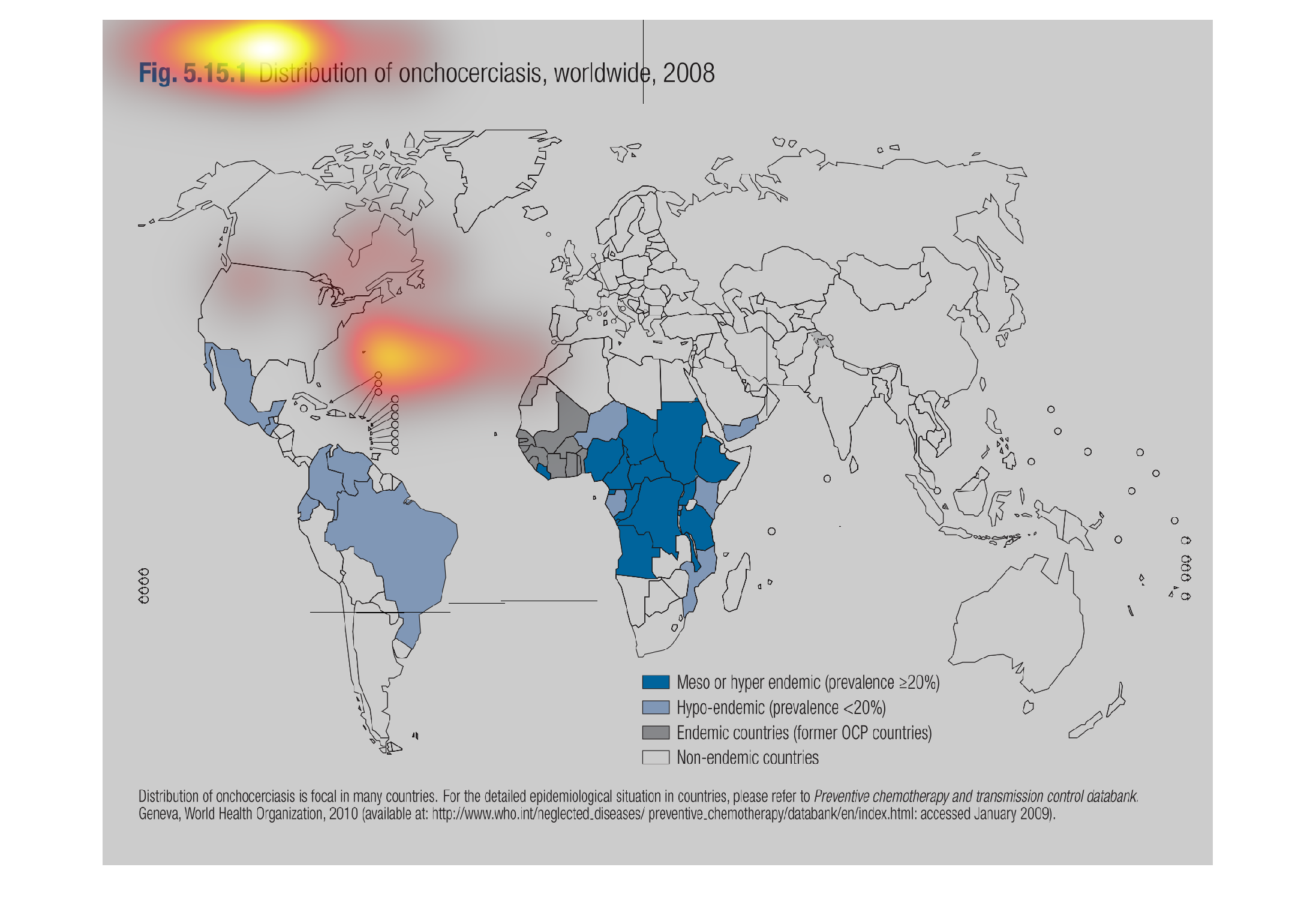
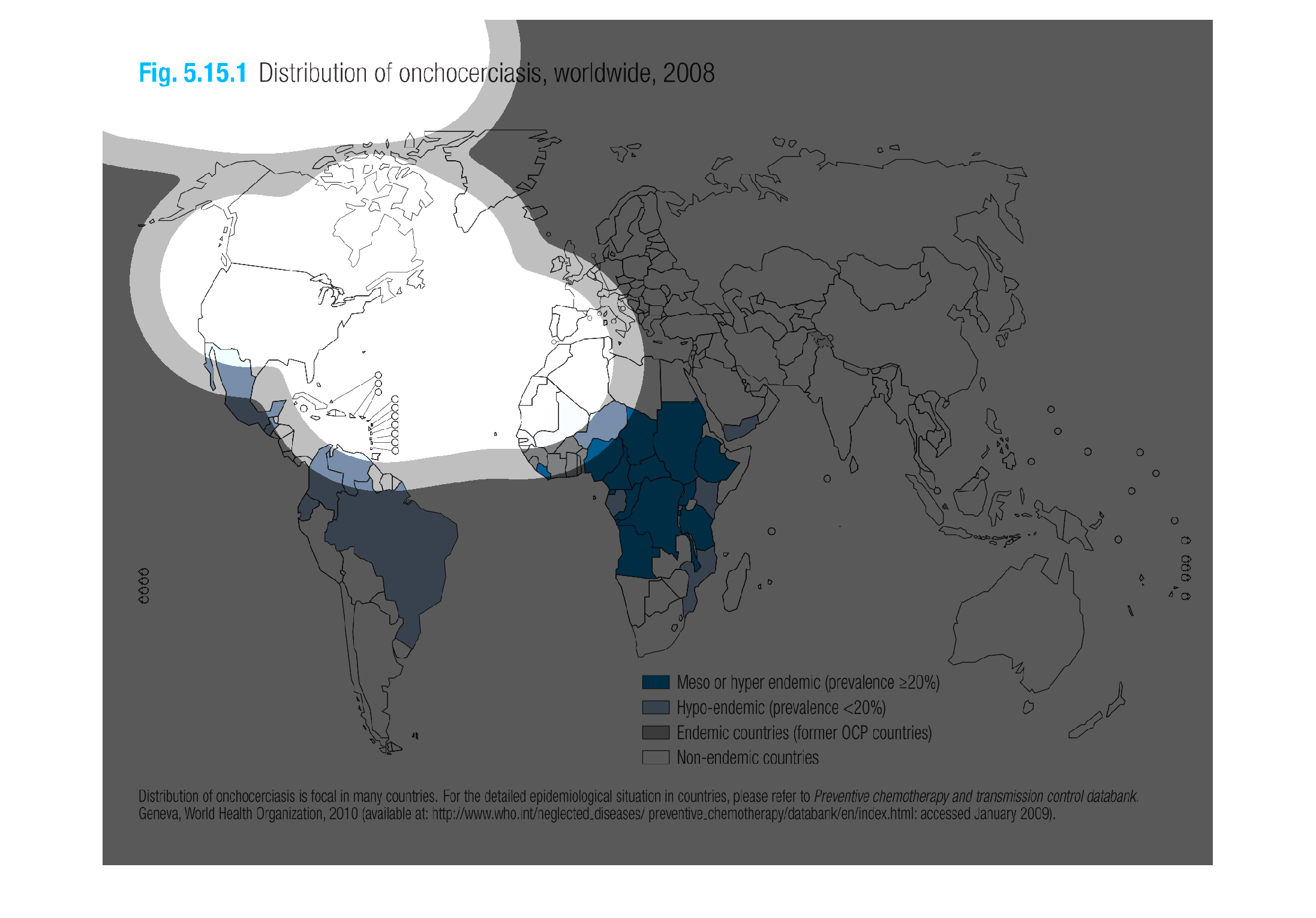
This is a world map that shows the distribution of onchocerciasis across the globe. The countries
in the darkest blue show the highest rates while the white colored countries show no presence.
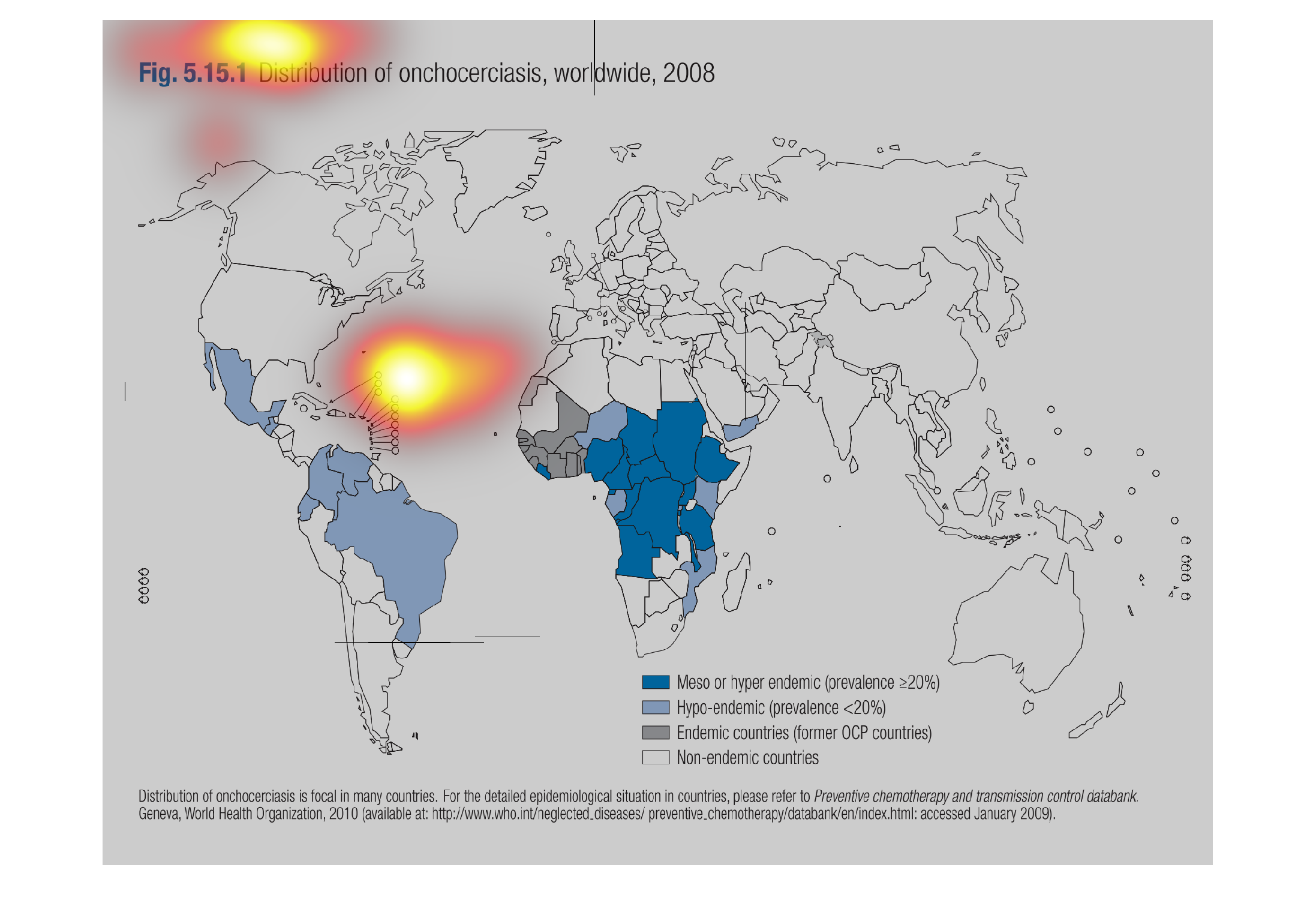
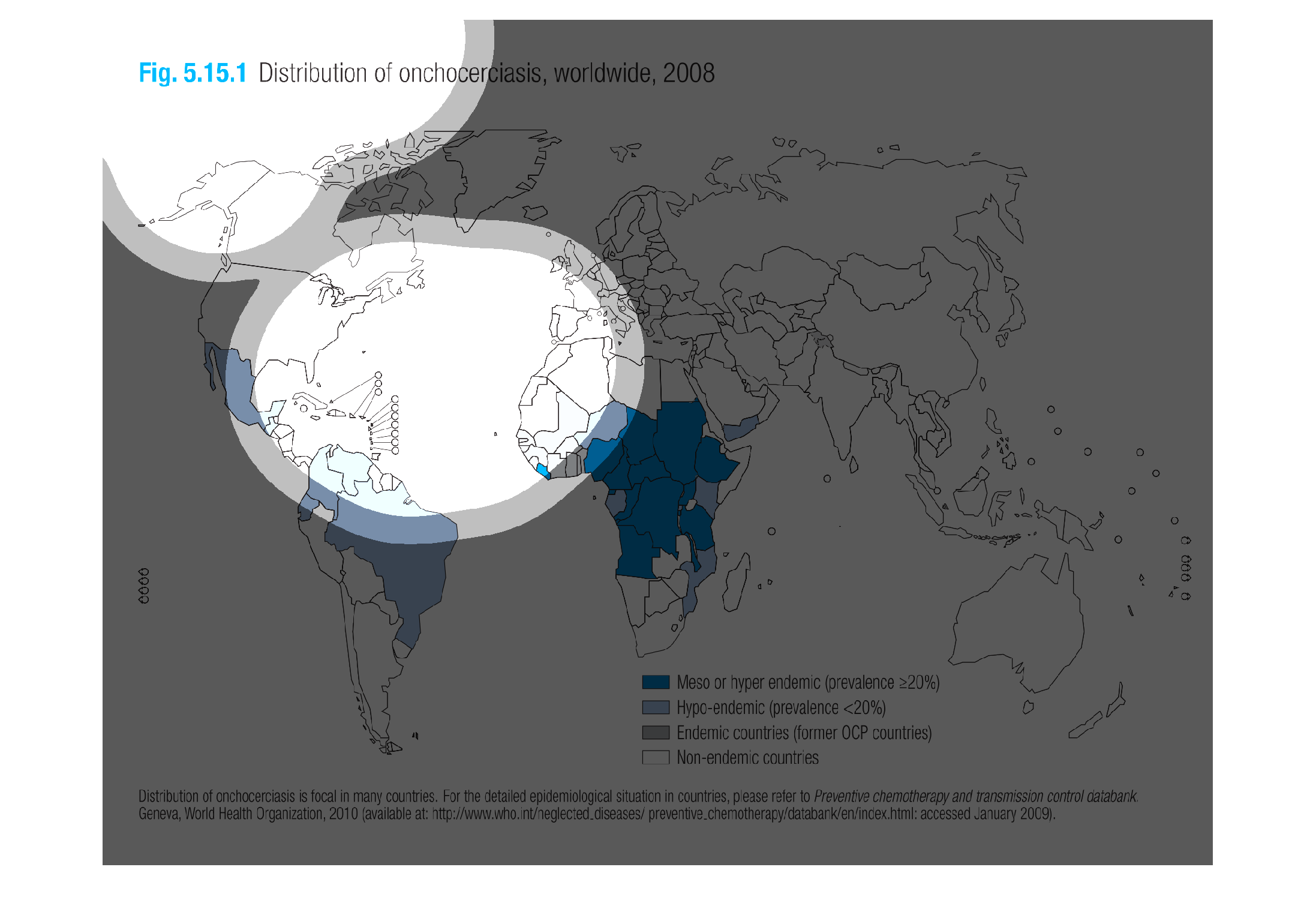
The figure presented is titled Figure 5.15.1 distribution of oncherciasis, worldwide, 2008.
The figure is a representation of the distribution of oncherciasis.
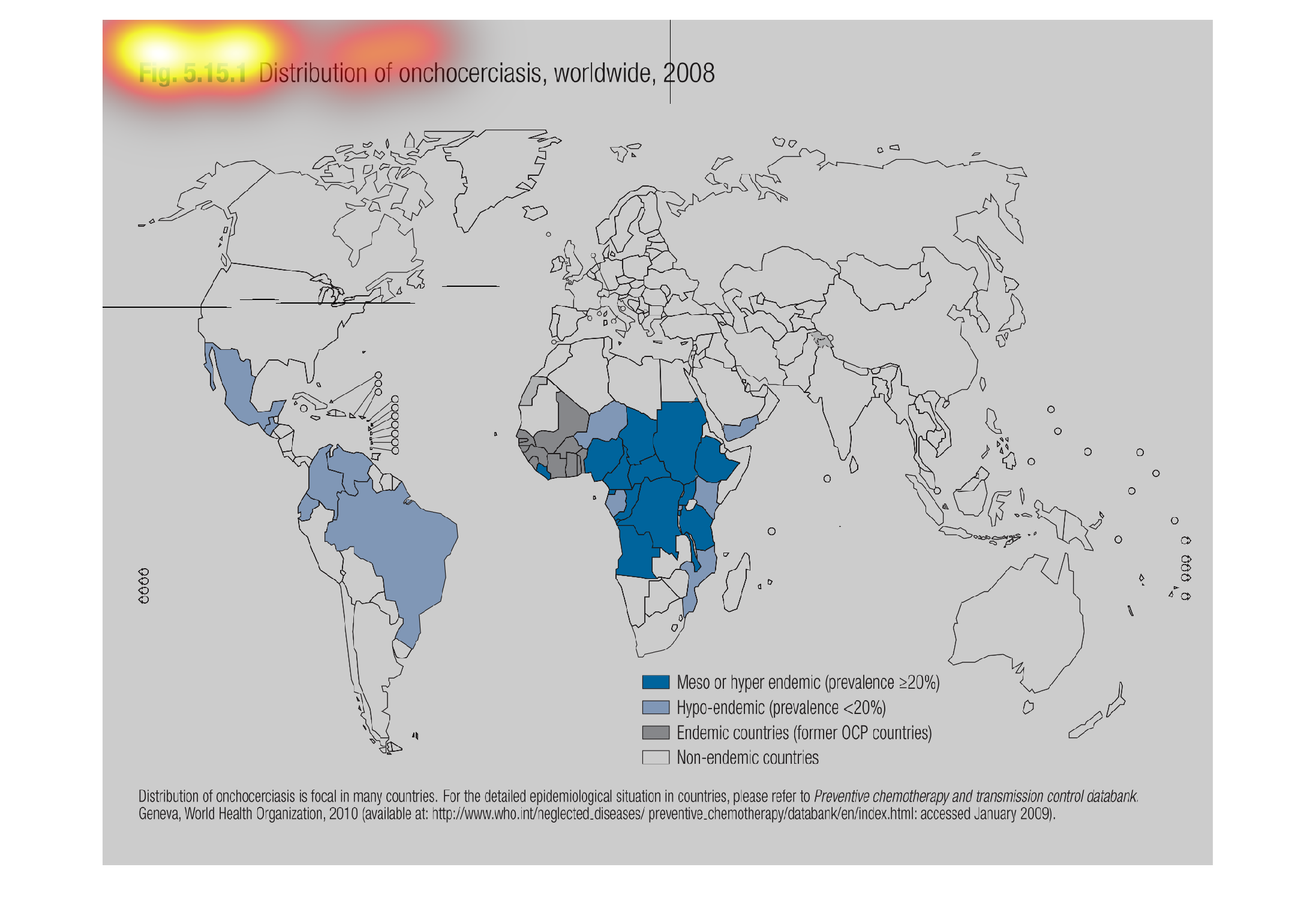
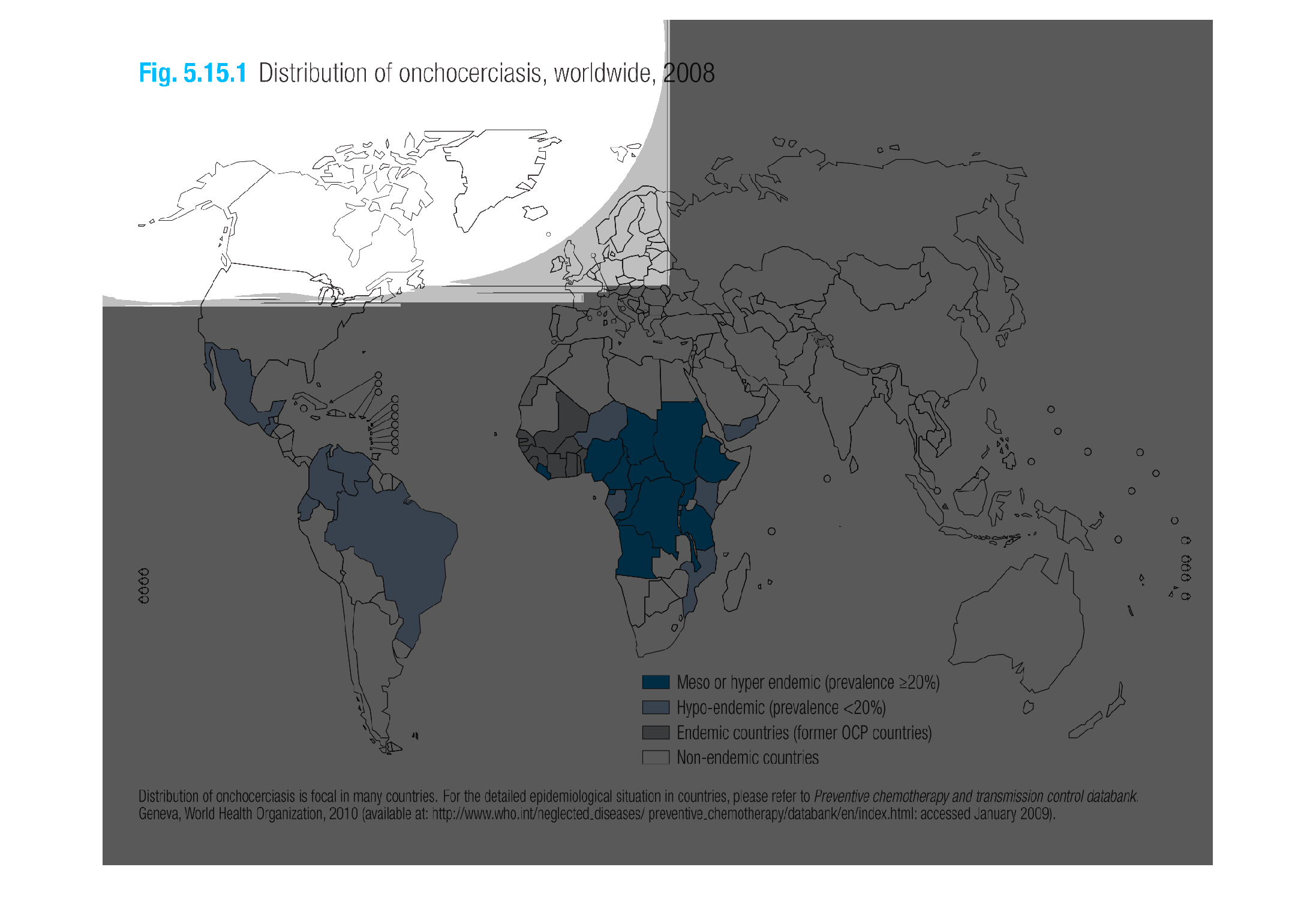
This image shows the distribution of onchocerclasis worldwide in 2008. Different levels are
given a color and then the colors are plotted on the world map to show the amount present
in each area of the globe.
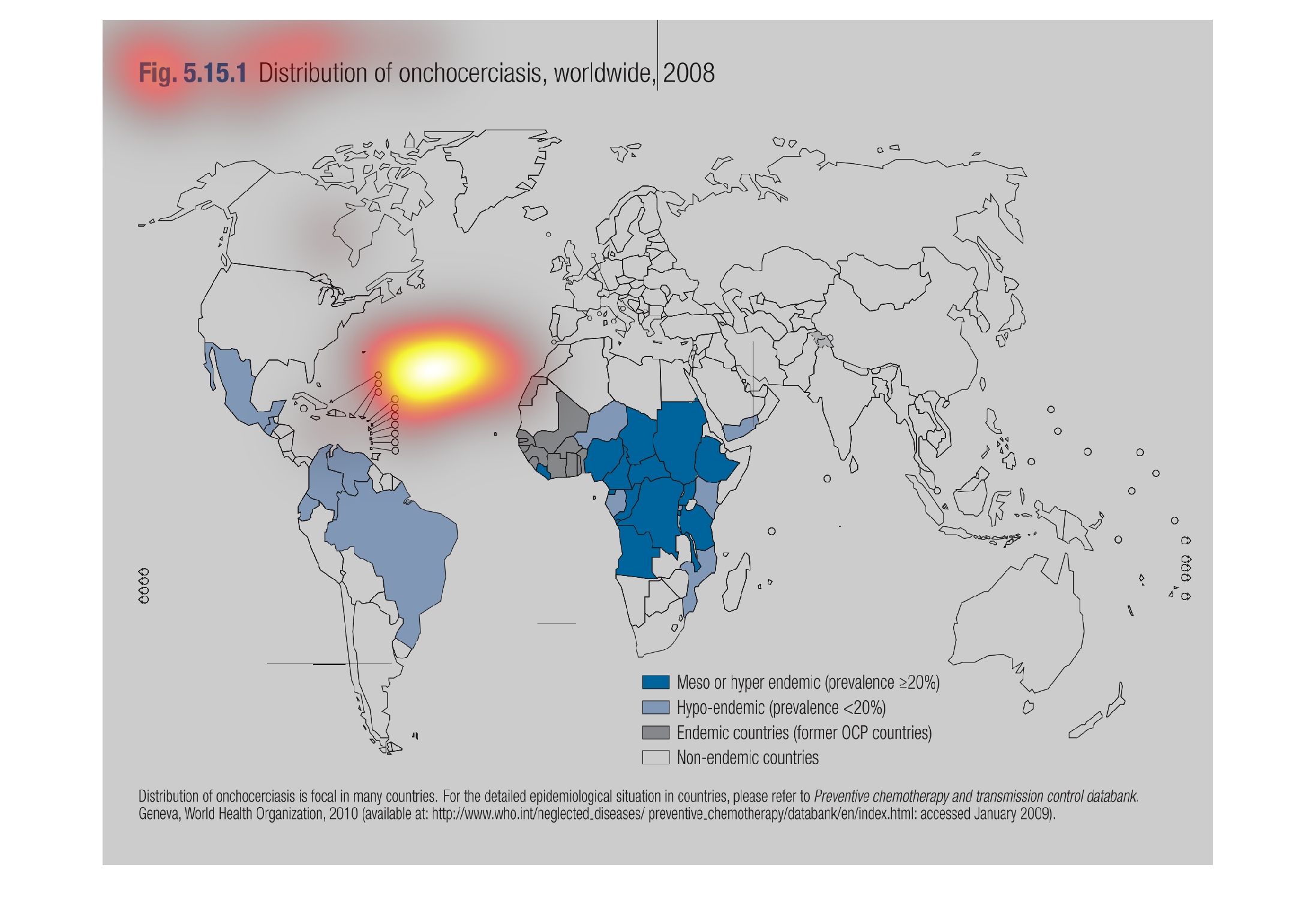
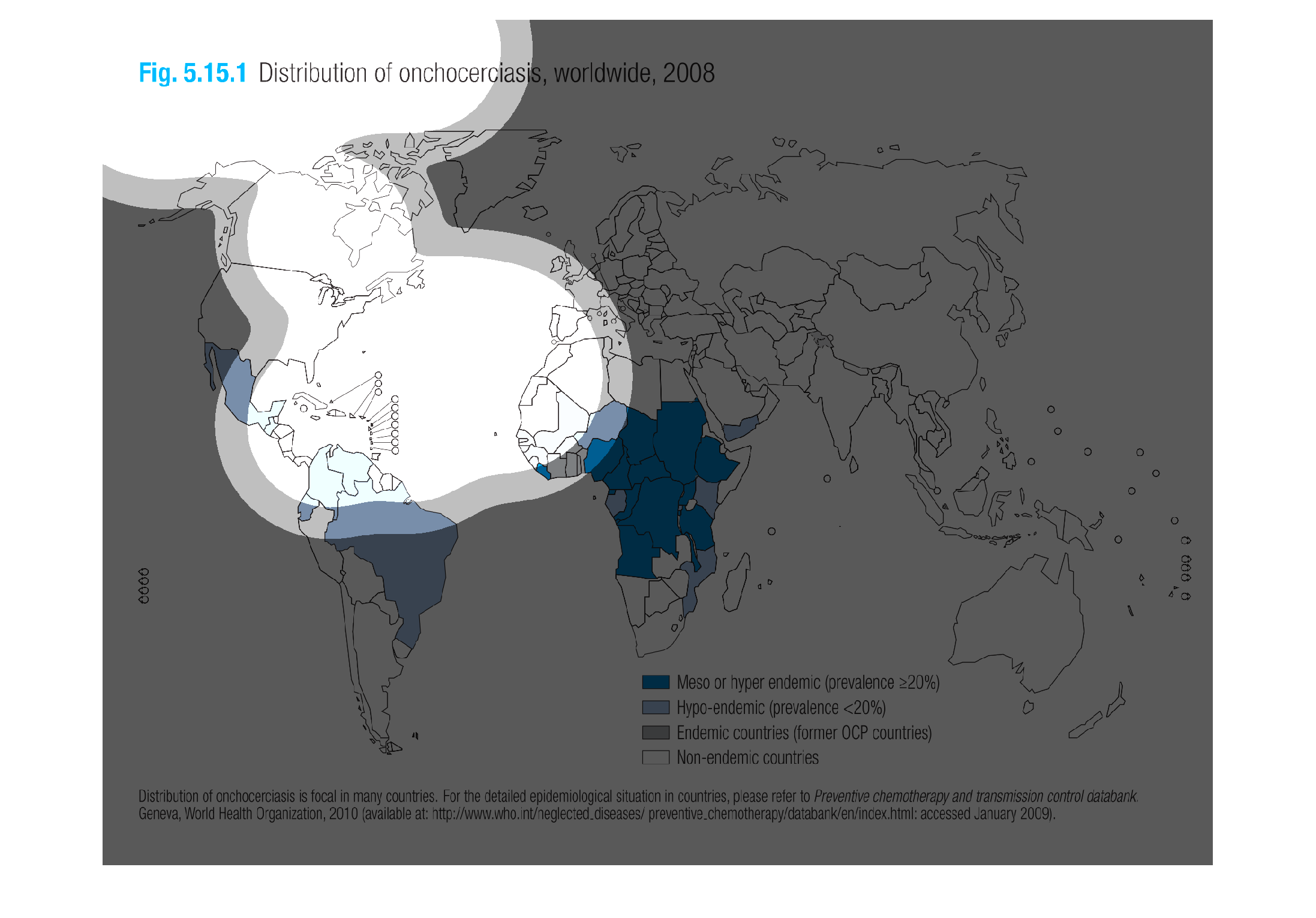
This is a graph of the distribution of onchocerciasis worldwide. There is hardly any cases
in the United States or Europe, while their are many cases in Africa.
